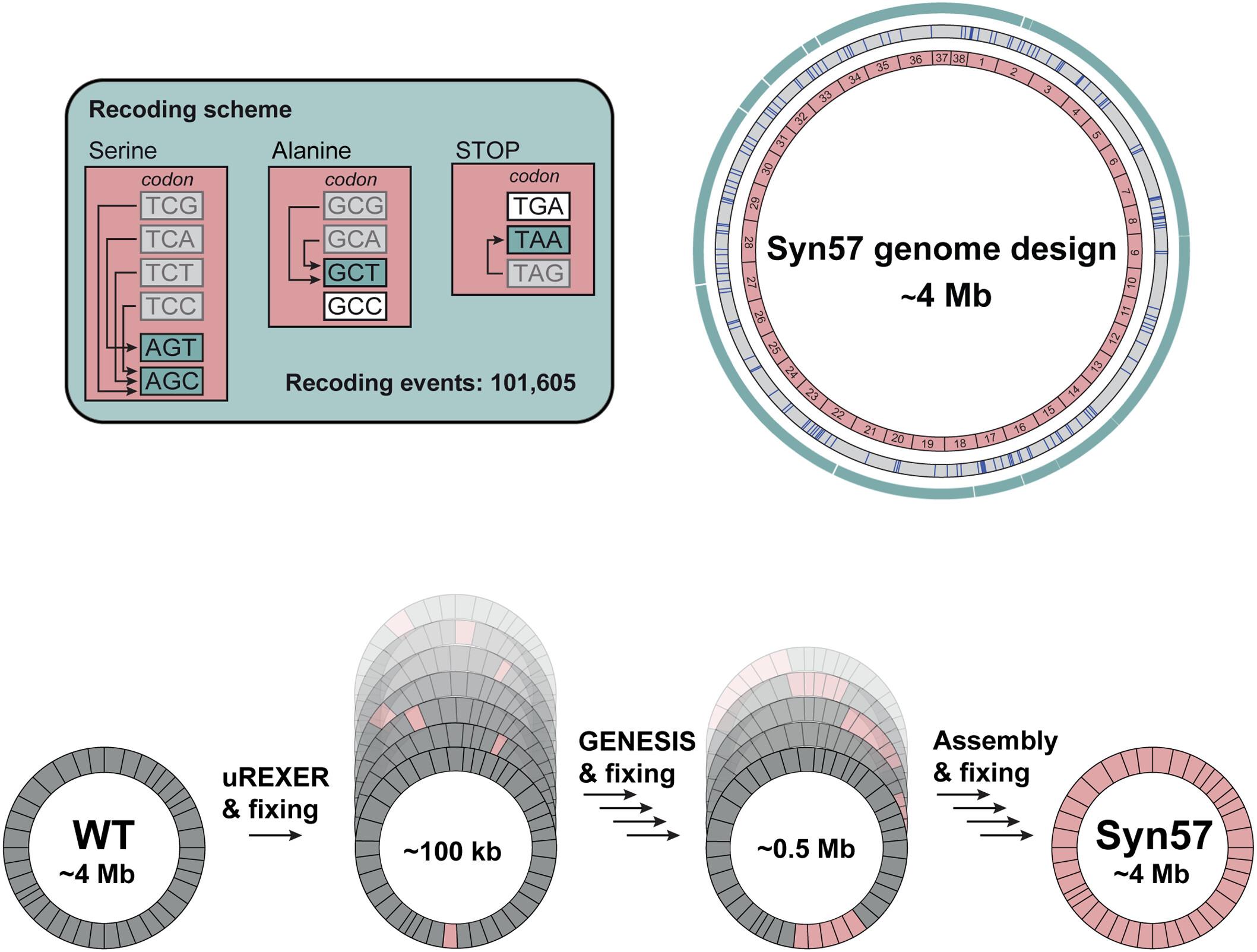Escherichia coli with a 57-codon genetic code
IF 45.8
1区 综合性期刊
Q1 MULTIDISCIPLINARY SCIENCES
引用次数: 0
Abstract
The near-universal genetic code uses 64 codons to encode the 20 canonical amino acids and protein synthesis. Here, we designed and generated Escherichia coli with a 4-megabase synthetic genome in which we replaced known occurrences of six sense codons and a stop codon with synonymous codons. The resulting organism, Syn57, uses 55 codons to encode the 20 canonical amino acids.

有57个密码子的大肠杆菌
这种近乎普遍的遗传密码使用64个密码子编码20种典型氨基酸和蛋白质合成。在这里,我们设计并生成了一个4 Mb的大肠杆菌合成基因组,我们用同义密码子替换了已知的6个意义密码子和一个停止密码子。合成的生物体Syn57使用55个密码子编码20个典型氨基酸。
本文章由计算机程序翻译,如有差异,请以英文原文为准。
求助全文
约1分钟内获得全文
求助全文
来源期刊

Science
综合性期刊-综合性期刊
CiteScore
61.10
自引率
0.90%
发文量
0
审稿时长
2.1 months
期刊介绍:
Science is a leading outlet for scientific news, commentary, and cutting-edge research. Through its print and online incarnations, Science reaches an estimated worldwide readership of more than one million. Science’s authorship is global too, and its articles consistently rank among the world's most cited research.
Science serves as a forum for discussion of important issues related to the advancement of science by publishing material on which a consensus has been reached as well as including the presentation of minority or conflicting points of view. Accordingly, all articles published in Science—including editorials, news and comment, and book reviews—are signed and reflect the individual views of the authors and not official points of view adopted by AAAS or the institutions with which the authors are affiliated.
Science seeks to publish those papers that are most influential in their fields or across fields and that will significantly advance scientific understanding. Selected papers should present novel and broadly important data, syntheses, or concepts. They should merit recognition by the wider scientific community and general public provided by publication in Science, beyond that provided by specialty journals. Science welcomes submissions from all fields of science and from any source. The editors are committed to the prompt evaluation and publication of submitted papers while upholding high standards that support reproducibility of published research. Science is published weekly; selected papers are published online ahead of print.
 求助内容:
求助内容: 应助结果提醒方式:
应助结果提醒方式:


